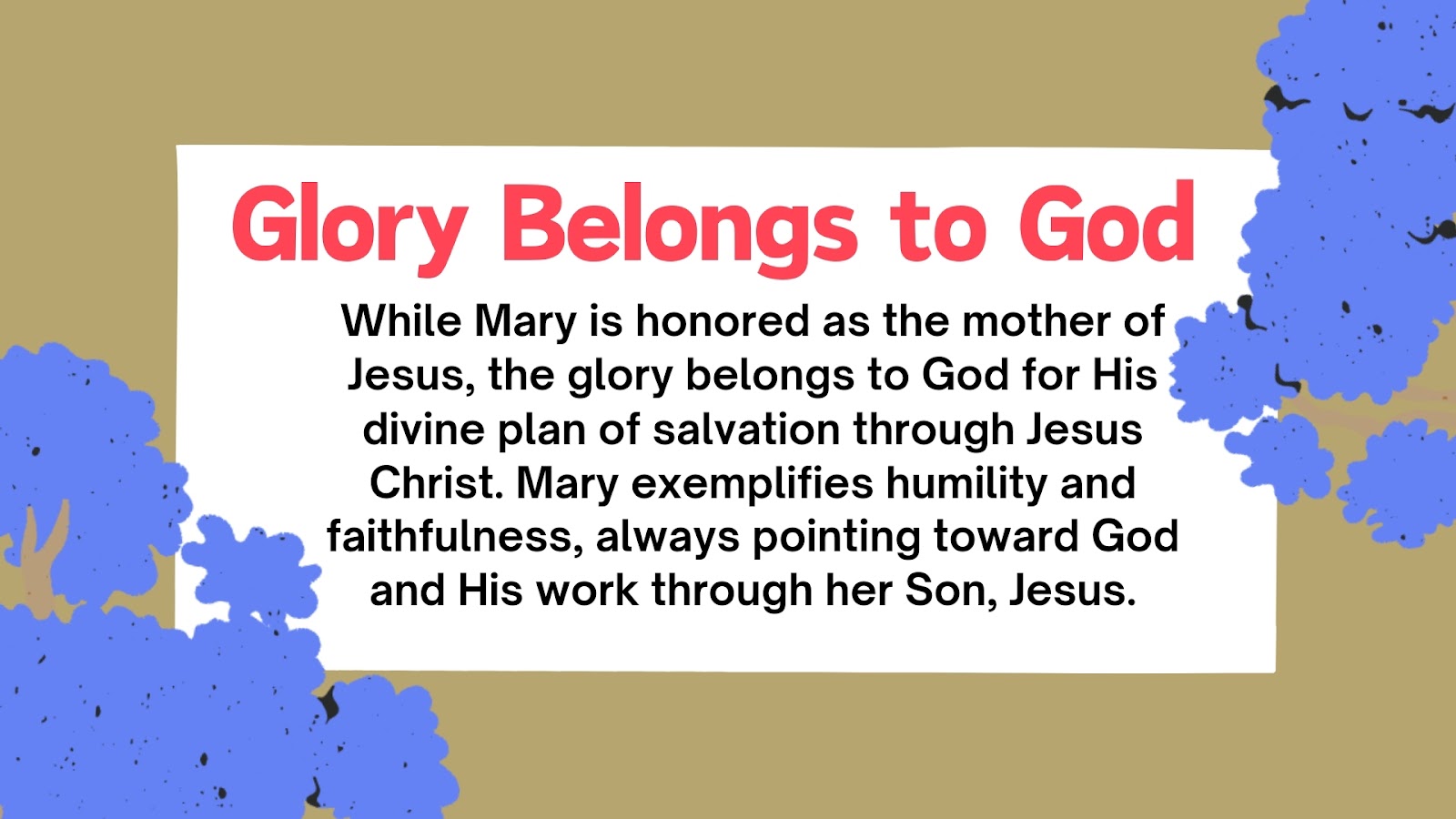1. Luke 1:28-30 (The Annunciation)
"The angel went to her and said, 'Greetings, you who are highly favored! The Lord is with you.' Mary was greatly troubled at his words and wondered what kind of greeting this might be. But the angel said to her, 'Do not be afraid, Mary; you have found favor with God.' "
Reflection: Mary is described as highly favored, but it is God who grants her favor. Her role is significant, yet it is God's plan unfolding through her obedience. The emphasis here is on God’s grace and purpose being fulfilled through her life.
2. Luke 1:46-49 (Mary’s Song of Praise - The Magnificat)
"And Mary said: 'My soul glorifies the Lord and my spirit rejoices in God my Savior, for he has been mindful of the humble state of his servant. From now on all generations will call me blessed, for the Mighty One has done great things for me—holy is his name.' "
Reflection: Even in Mary’s own words, she directs all glory to God. She acknowledges that anything done through her is because of God’s greatness, holiness, and mercy. The focus is on God’s mighty acts, and she sees herself as a humble servant.
3. Matthew 1:20-21 (The Angel's Message to Joseph)
"But after he had considered this, an angel of the Lord appeared to him in a dream and said, 'Joseph son of David, do not be afraid to take Mary home as your wife, because what is conceived in her is from the Holy Spirit. She will give birth to a son, and you are to give him the name Jesus, because he will save his people from their sins.' "
Reflection: Mary’s role is critical, yet the focus remains on God’s salvation plan. The child she will bear is from the Holy Spirit, and the purpose of Jesus’ birth is to save people from their sins. The glory of the event lies in God’s redemptive work through Christ.
4. John 2:1-5 (The Wedding at Cana)
"On the third day a wedding took place at Cana in Galilee. Jesus’ mother was there, and Jesus and his disciples had also been invited to the wedding. When the wine was gone, Jesus’ mother said to him, 'They have no more wine.' Jesus replied, 'Woman, why do you involve me? My hour has not yet come.' His mother said to the servants, 'Do whatever he tells you.' "
Reflection: Mary’s involvement at the wedding points to her faith in Jesus, yet she directs the servants to follow Jesus' instructions, implying that the solution and glory will come through Him, not her. Even in her interaction, she acknowledges the authority of Jesus as central.
5. Acts 1:14 (Mary in the Early Church)
"They all joined together constantly in prayer, along with the women and Mary the mother of Jesus, and with his brothers."
Reflection: After Jesus’ resurrection and ascension, Mary is seen in prayer alongside the apostles and early believers. This demonstrates her humility and continued role as a follower of Christ. She is a part of the church but not exalted above it; the glory is still directed to God and the risen Christ.
How the Glory Remains with God:
Throughout the New Testament, Mary is portrayed as a faithful servant of God who plays a vital role in Jesus' life, but the ultimate focus is always on God’s glory. Mary herself glorifies God in the Magnificat (Luke 1:46-55), directing all praise to God for His work in her life and through Jesus. The Bible consistently points back to God's redemptive work through Christ, and Mary's role is one of humble submission to God's will.
Key Takeaway: While Mary is honored as the mother of Jesus, the glory belongs to God for His divine plan of salvation through Jesus Christ. Mary exemplifies humility and faithfulness, always pointing toward God and His work through her Son, Jesus.


